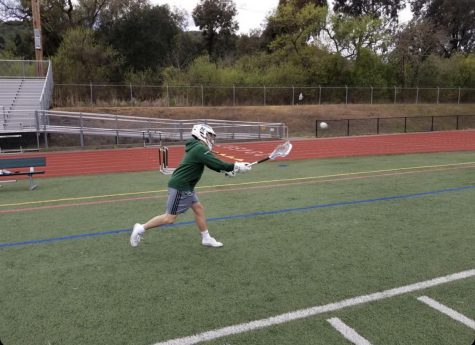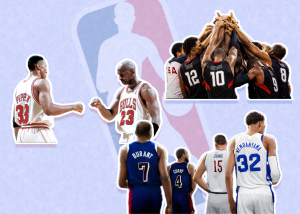Conspiracy on Invermectin Pill Treating COVID-19 Circles the Internet
April 12, 2021
As a student desperately searches the internet for possible treatments for COVID-19, they stumble upon a blog. The blog rambles about an anti-parasitic drug used for treating animals. However, the blog tells a detailed story about how a cattle rancher used Ivermectin, a tablet normally used to treat animals for parasitic worms, to successfully treat their family’s outbreak of COVID-19.
Ivermectin’s effectiveness recently became a conspiracy circling throughout the internet. While the U.S. Food and Drug Administration (FDA) approved Ivermectin for use in the treatment of animals and certain parasitic illnesses, they have explicitly advised against the use of Ivermectin to treat COVID-19.
Since Ivermectin is commonly used for large animals like horses and cows, the tablet is possibly unsafe for humans because of higher concentrations and inactive ingredients that haven’t been tested for use in people. Nevertheless, some theorists have tested the tablet themselves and believe that it cured them from COVID-19. This has led to a plethora of anecdotal evidence and “hearsay” used to prove the drug’s validity.
While many students are not aware of the theory, conspiracists believe that Ivermectin is an extremely effective treatment for COVID-19 that has been kept from the American public.
“I’ve never heard of Ivermectin. I never really believe conspiracy theories, but I’ll believe that it’s a useful treatment if I see evidence for it. I always see this stuff as people trying to discover something random, so I’d be pretty surprised if this was actually true,” junior Daniel Niu said.
Unfortunately for conspiracy theorists, many studies, such as one published by the International Society of Travel Medicine, showed inconclusive results for the effectiveness of Ivermectin against viruses, specifically COVID-19.
The drug added to a list of conspiracy theories throughout the years, constantly circling the Internet and luring more people into “awakenings”. However, most students at Miramonte stay away from wild conspiracies.
“I always just see it as crazy people that want to stir up trouble and create a sense of meaning in their lives. They’ll always say something about the government keeping secrets about crazy things or some other random thing that they can get other people to care about,” junior Dominic Clerici said.
Popular conspiracy theories such as aliens at Area 51, the “truth” behind the assassination of former President John F. Kennedy, the identity of the Zodiac Killer, the existence of Bigfoot and the Loch Ness monster, and common government-involved theories can create panic for naive readers and listeners.
Fortunately, it seems most Miramonte students have enough resources and common sense to avoid being pulled into an online rabbit hole of misinformation. “It’s funny seeing weird conspiracy theories online, but I never look into them. I don’t like spending my time watching that stuff, and there need to be credible sources for me to believe something. These conspiracy theories never have actual, solid evidence,” sophomore Phoenix Dennis said.
On the other hand, some students follow more conceivable theories, and have formed their own opinions that support outlandish ideas. “It’s not much of a conspiracy theory, but I believe ghosts are real because spiritual beings are the same thing as ghosts. I’ve seen people on footage and multiple people have seen paranormal activity. I also think aliens are definitely real. When I was a kid, I always had a misconception of what aliens were; I always saw them as tall green figures. But in reality, there are people that devote their lives to proving that ancient structures such as the Great Pyramids of Giza were aided by aliens, because of their incredible accuracy. It’s a weird thing to believe, but it’s fun to follow and research,” junior Mikaela Santos said.
Conspiracy theories can lead to crazy ideas and wild believers, but they can also lead to remarkable revelations and discoveries. After considering all possibilities of the statements and stories, the student makes sure to do diligent research before deciding if they should believe more theories.








